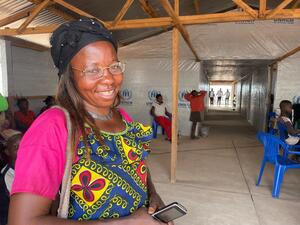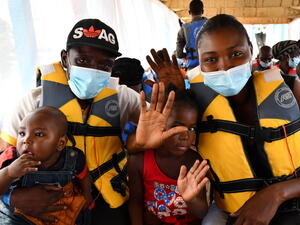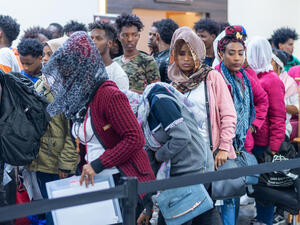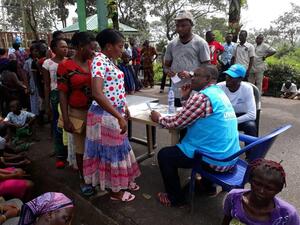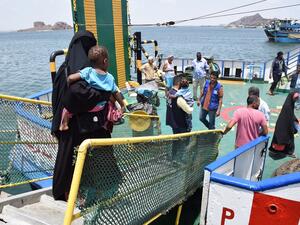South Sudan repatriation to start Saturday, says UNHCR
South Sudan repatriation to start Saturday, says UNHCR
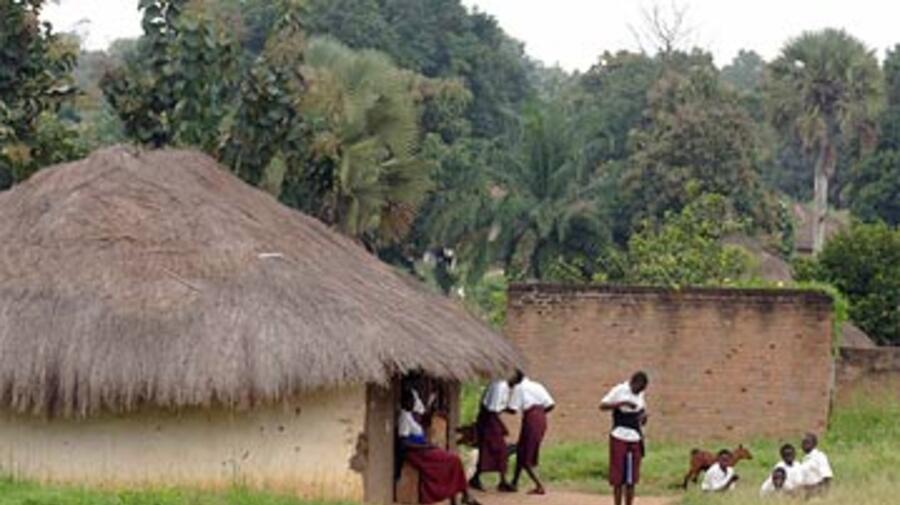
Education – or lack of it – is of great importance to potential returnees. UNHCR plans to build a new school to replace this crumbling secondary school for girls in Yei, South Sudan.
GENEVA, December 13 (UNHCR) - The UN refugee agency announced that the long-awaited official voluntary repatriation of refugees to South Sudan will begin on Saturday, 17 December, from Kakuma refugee camp in north-western Kenya.
"We expect the number of refugees going home this week to be small - not more than 150," UNHCR spokeswoman Jennifer Pagonis told reporters in Geneva, "but this first official movement is symbolic of refugees' desire to re-establish themselves in their homeland, and our desire to help them do so."
There are scheduled to be two movements of returnees - one by air and one by road - Pagonis said. On Saturday, two passenger planes are to take refugees home from Kakuma to Bor in South Sudan. Their possessions will already have been transported by cargo plane the previous day.
Also on Saturday, a convoy of buses and trucks is scheduled to transport another group of refugees and their possessions to Nadapal on the border, where the returnees will be welcomed home by South Sudanese authorities. Shortly after entering Sudan, the convoy will split into two, heading for different destinations in Eastern Equatoria - one part going to Kapoeta, and the other to Chukudum.
UNHCR will provide the returnees with a package of basic household goods to help them survive at home, and the World Food Programme is giving them an initial two-week supply of food to tide them over until it is in a position to make a larger distribution in early January.
Sudan's 21-year civil war in the south came to an end in January this year when a peace accord was signed. Even before the signing, UNHCR had been working with other UN agencies and non-governmental organizations on the daunting task of preparing South Sudan to receive returnees. Up to half a million refugees who have been living in refugee camps and settlements in neighbouring countries could return in the next few years, along with up to four million people displaced within Sudan itself.
Some refugees have already gone home on their own - particularly from the Democratic Republic of the Congo - without waiting for the official assisted repatriation to start. But many others - including most of those in Kenya - are taking a more cautious approach because of the lack of infrastructure and services in their homeland. Most of South Sudan never had much in the way of services in the first place, and much of the rudimentary infrastructure that did exist was destroyed during the war.
UNHCR's approach, alongside other agencies, has been to undertake projects that will help entire communities, without differentiating between residents who never left and those who are coming back.
"We have built schools, water points, hospitals and vocational training centres to help them rebuild their lives and stay home," said Pagonis. "The new services are also intended as a spur to economic development, and should help promote reconciliation between returnees and local communities."
Earlier this month, UNHCR took delegations of refugees from Kakuma to South Sudan on what are known as "go-and-see visits" to help them decide on their own whether conditions are right for return.
There are some 72,000 Sudanese refugees in Kakuma camp. The main asylum countries for refugees from South Sudan are Uganda (204,400), Ethiopia (90,500), the Democratic Republic of the Congo (69,400), Kenya (74,000), Central African Republic (36,000), and Egypt (30,324).

